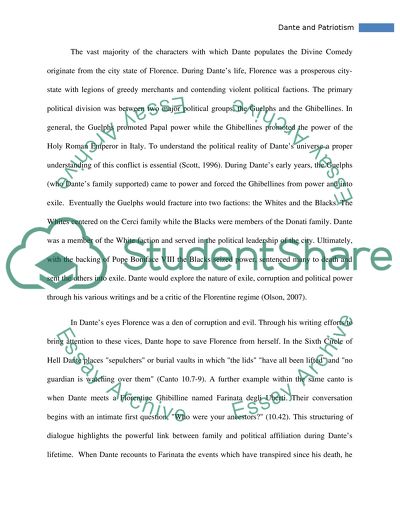Cite this document
(“An Analysis of Patriotism in Dante' s Inferno Essay”, n.d.)
Retrieved from https://studentshare.org/literature/1447050-dante-s-divine-comedy
Retrieved from https://studentshare.org/literature/1447050-dante-s-divine-comedy
(An Analysis of Patriotism in Dante' S Inferno Essay)
https://studentshare.org/literature/1447050-dante-s-divine-comedy.
https://studentshare.org/literature/1447050-dante-s-divine-comedy.
“An Analysis of Patriotism in Dante' S Inferno Essay”, n.d. https://studentshare.org/literature/1447050-dante-s-divine-comedy.


